Tanzania Peaberry Coffee Beans
Tanzania Peaberry Coffee Beans
Couldn't load pickup availability
Colipse Tanzania Peaberry is a medium-light roast, single-origin, high-altitude coffee from the Mount Kilimanjaro region, with rich chocolate and floral notes, ideal for pour-over and drip brewing.
It is a rare specialty coffee from Tanzania. Peaberry coffee beans are a natural mutation where only one round bean develops inside the cherry. These beans are small, round, and pea-shaped, unlike regular coffee beans.
This coffee is sourced directly from the Kilimanjaro Plantation Estate in the Kilimanjaro region. It is fully washed and sun-dried on raised beds or patios. It has bright acidity, medium body, and complex flavors. This coffee features fruity notes like black currant and citrus, floral undertones, and chocolatey richness.
It is ideal for brewing with drip coffee makers, AeroPress, and pour-over methods. It is available in whole bean and pre-ground coarse, medium, and fine grind sizes. Tanzania Peaberry coffee comes in 12 oz, 16 oz, 2 lb, and 5 lb bags with free shipping and bulk discounts. Every bag is roasted to order, vacuum-sealed for freshness, and shipped immediately. Buy Tanzania Peaberry and savor the unique, balanced flavor of rare peaberry beans, delivered fresh to your door.
Product Description
Product Description
- Roast Level: Medium-Light
- Origin: Moshi, Kilimanjaro, Tanzania
- Altitude: 1,200–2,000 meters
- Varietals: Bourbon and N39
- Harvesting Method: Hand-picked (selective harvesting)
- Processing Method: Washed
- Traceability: Sourced from Kilimanjaro Plantation Estate
- Supply Chain: Transparent; direct from estate
Flavor Profile
Flavor Profile
This East African coffee offers bright acidity with notes of chocolate, caramel, floral hints, and pear. It features a medium body, fragrant aroma, and a clean, balanced aftertaste. The layered profile shows clear sweetness and low bitterness, highlighting the coffee’s complexity and clarity.
- Acidity: Bright
- Flavor Notes: Rich chocolate, caramel, floral, crisp pear
- Body: Medium-rounded
- Aroma: Sweet, floral, with hints of fruit and chocolate
- Sweetness: High natural sweetness, especially in finish
- Bitterness: Low; well-balanced by acidity and sweetness
- Aftertaste: Clean and smooth with a lingering floral finish
- Cup Clarity: Very clear and vibrant
- Transparency: High—distinct flavor notes
- Complexity: Medium to high complexity with layered flavors
Delivery & Packaging
Delivery & Packaging
Order Colipse Tanzania Peaberry coffee online and receive complimentary shipping within the U.S.
Beans are roasted to order, vacuum-sealed in a protective, recyclable bag (multi-layer film, CO2 valve, expandable base) to block light, moisture, and air, and shipped in recyclable materials via USPS/UPS/FedEx within 3-5 business days.
How to Make
How to Make
Brew Tanzania Peaberry coffee by filling the hopper with whole beans, selecting your desired strength, and starting the super-automatic machine. Without a built-in grinder, use medium-ground Tanzania coffee for pour-over brewing using Hario V60, Chemex, or Kalita.
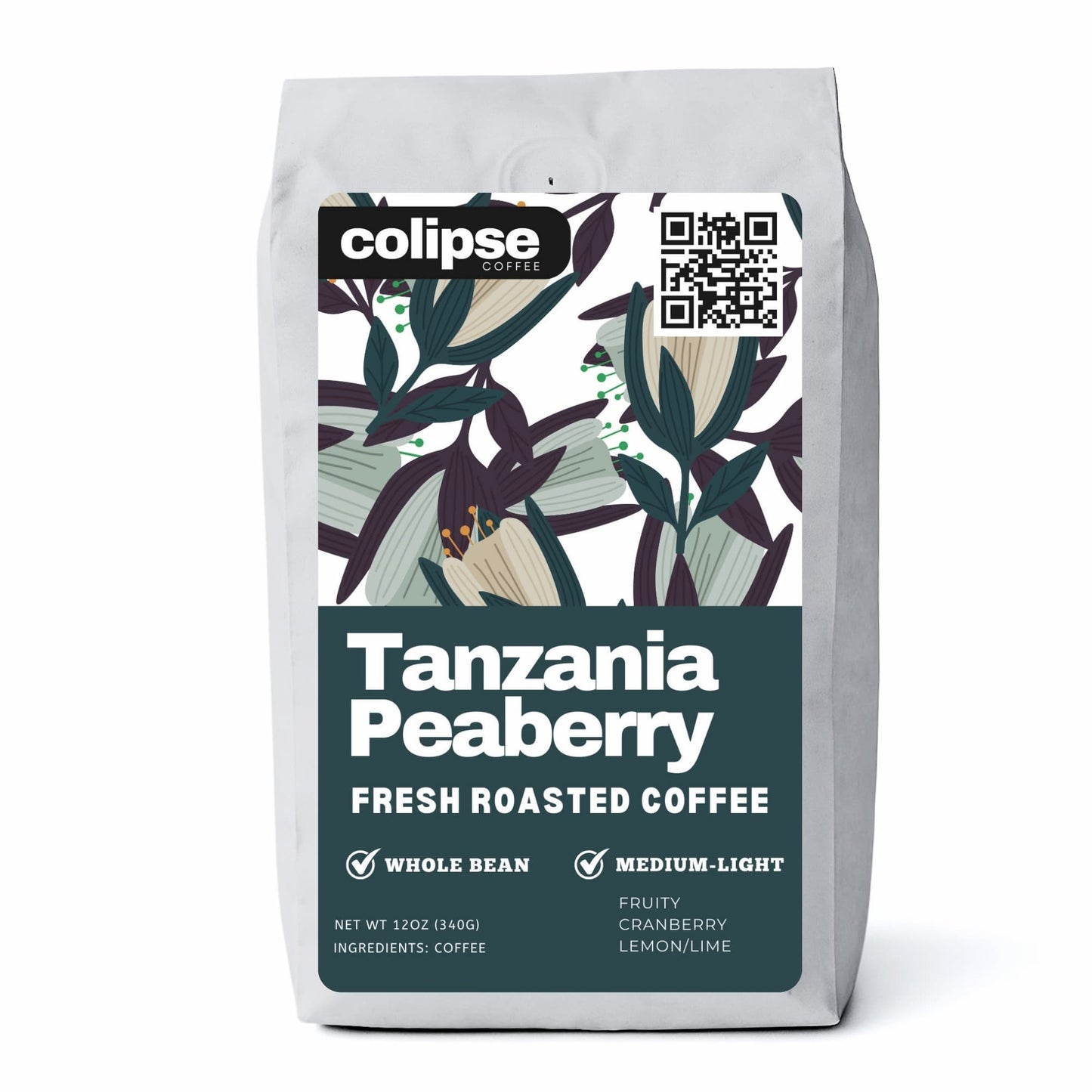
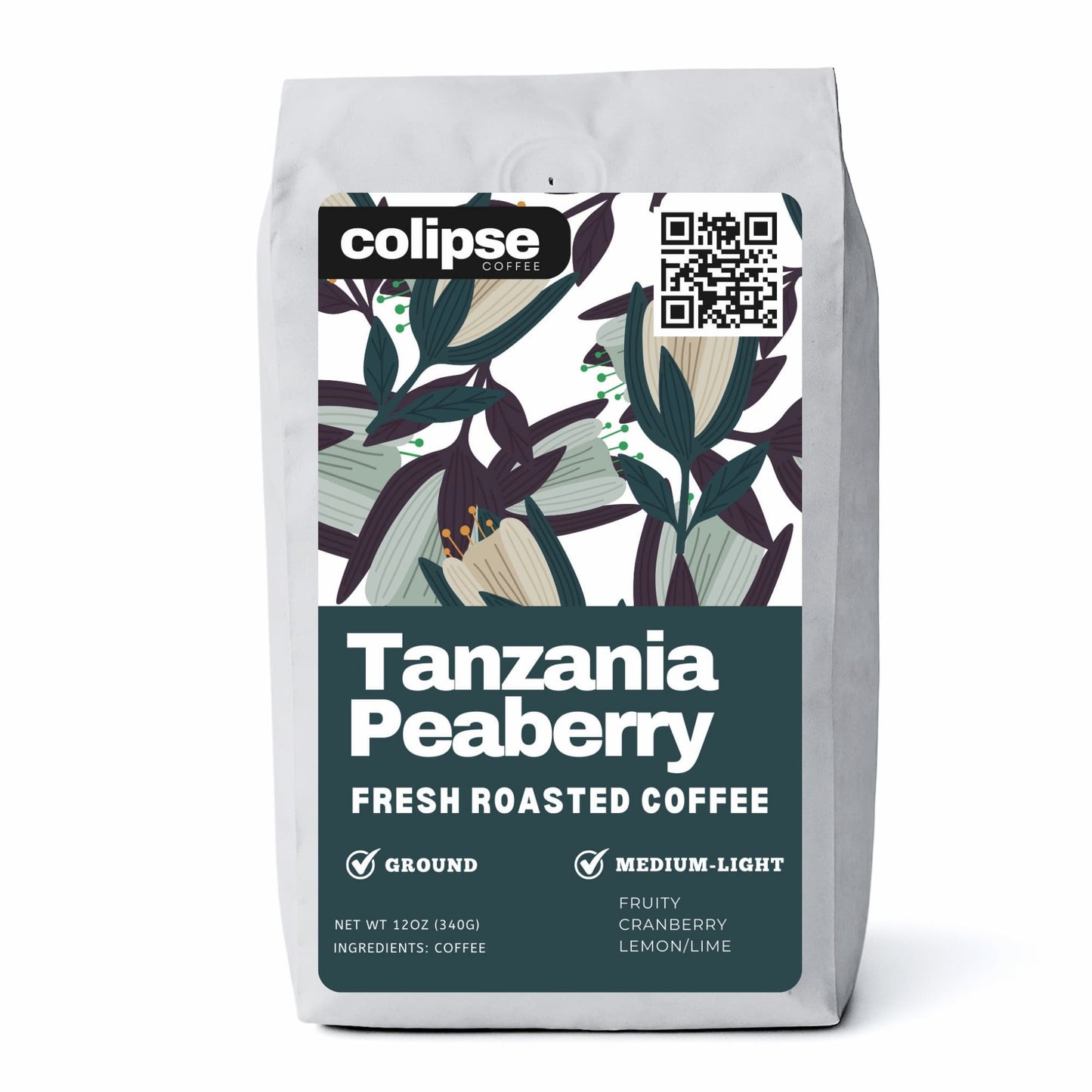
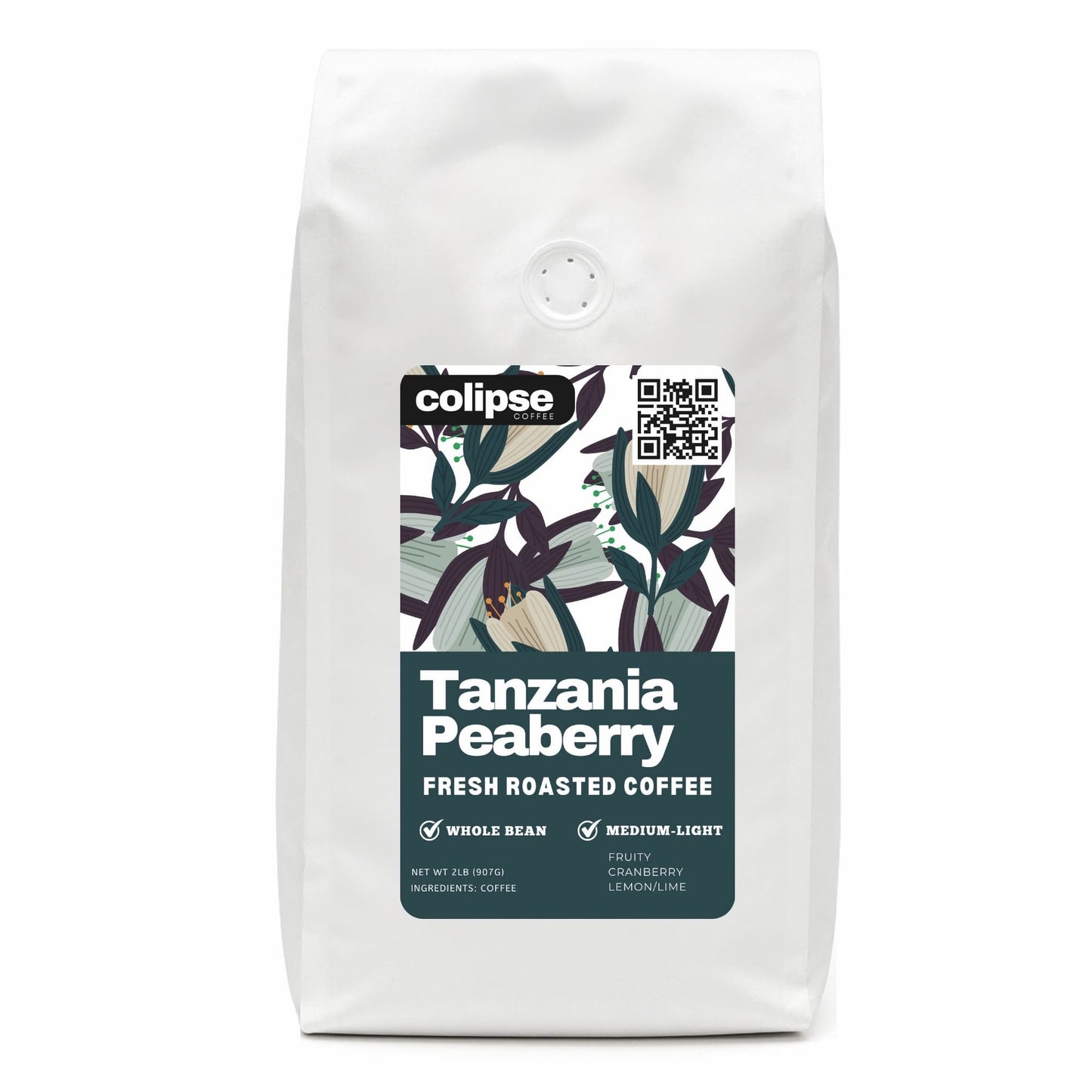
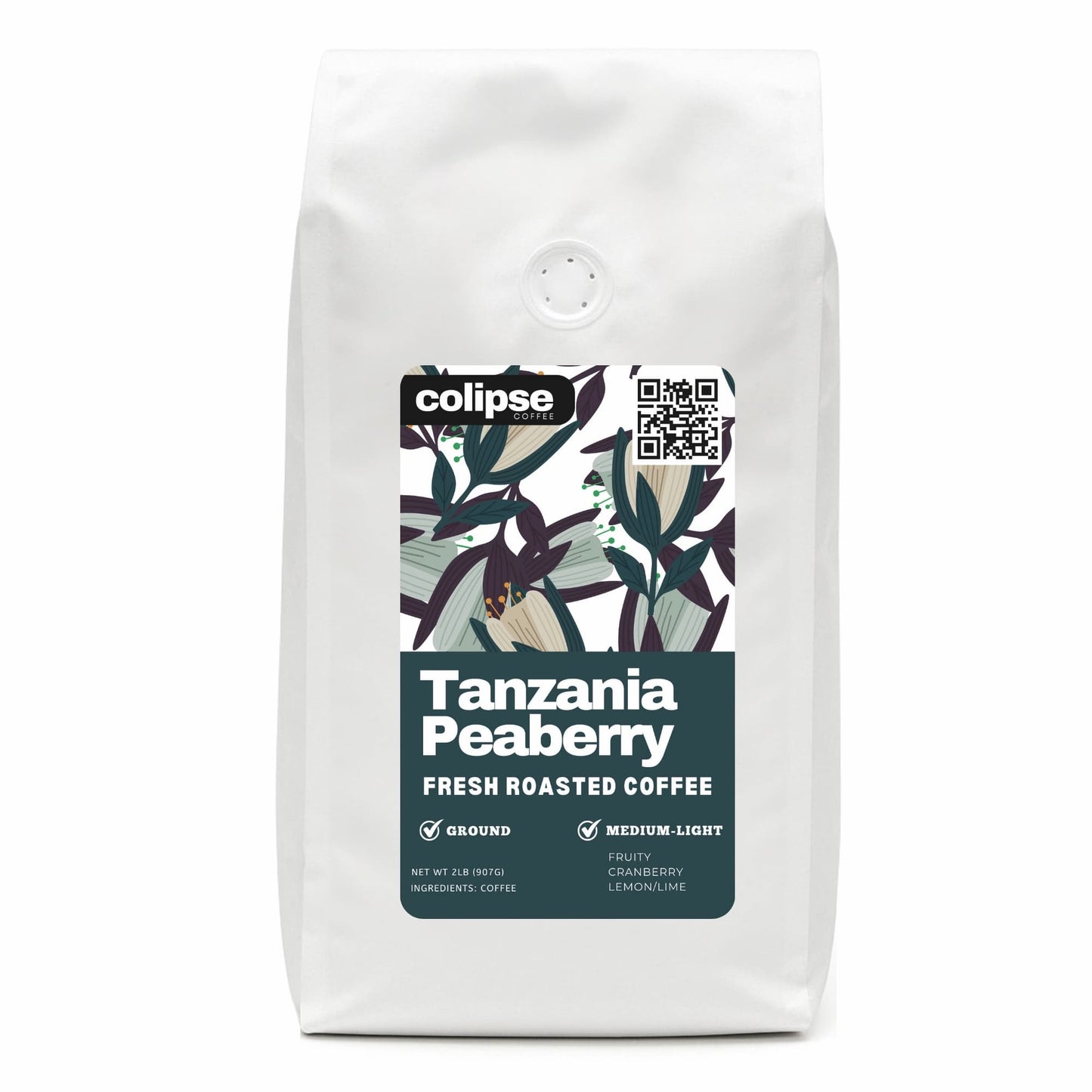
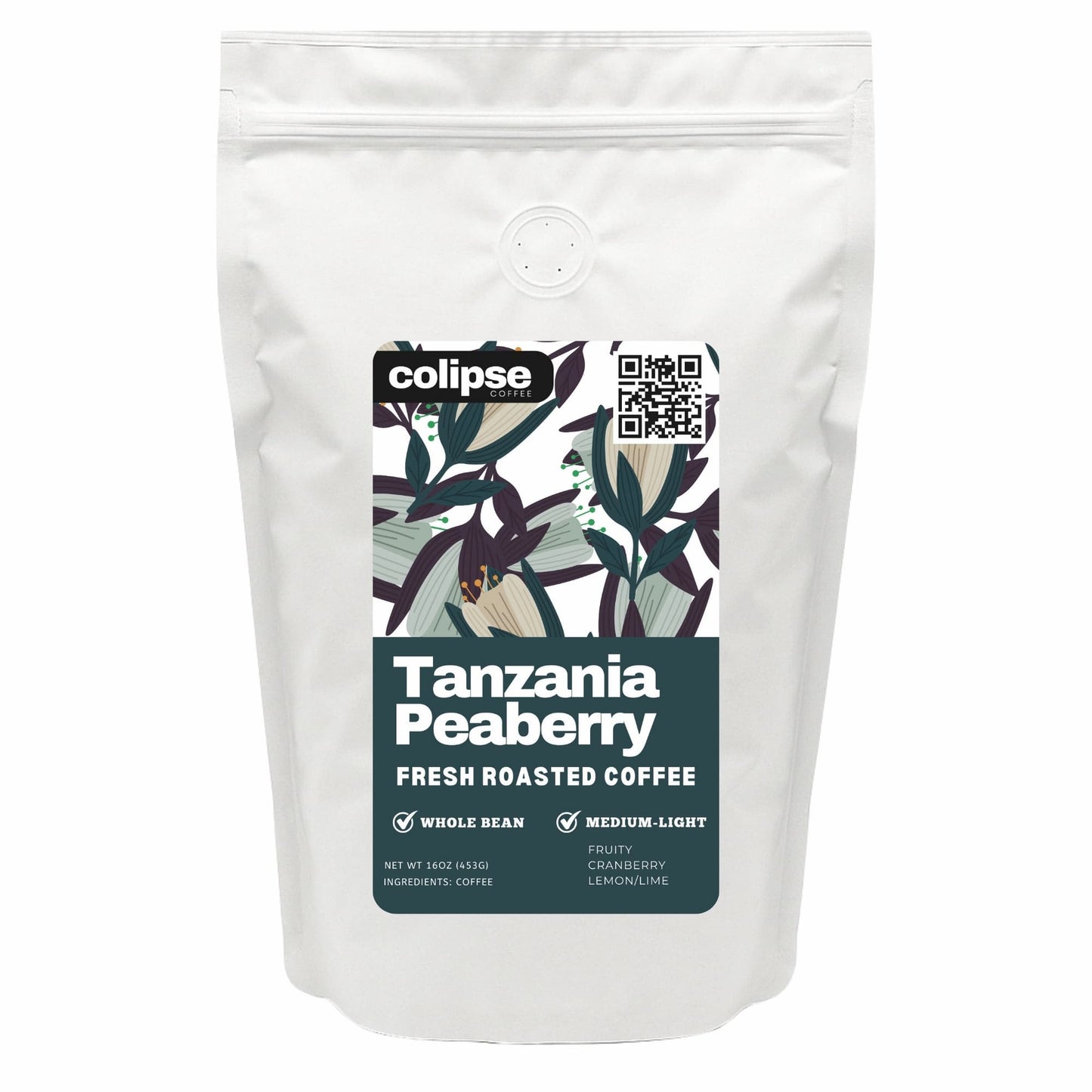
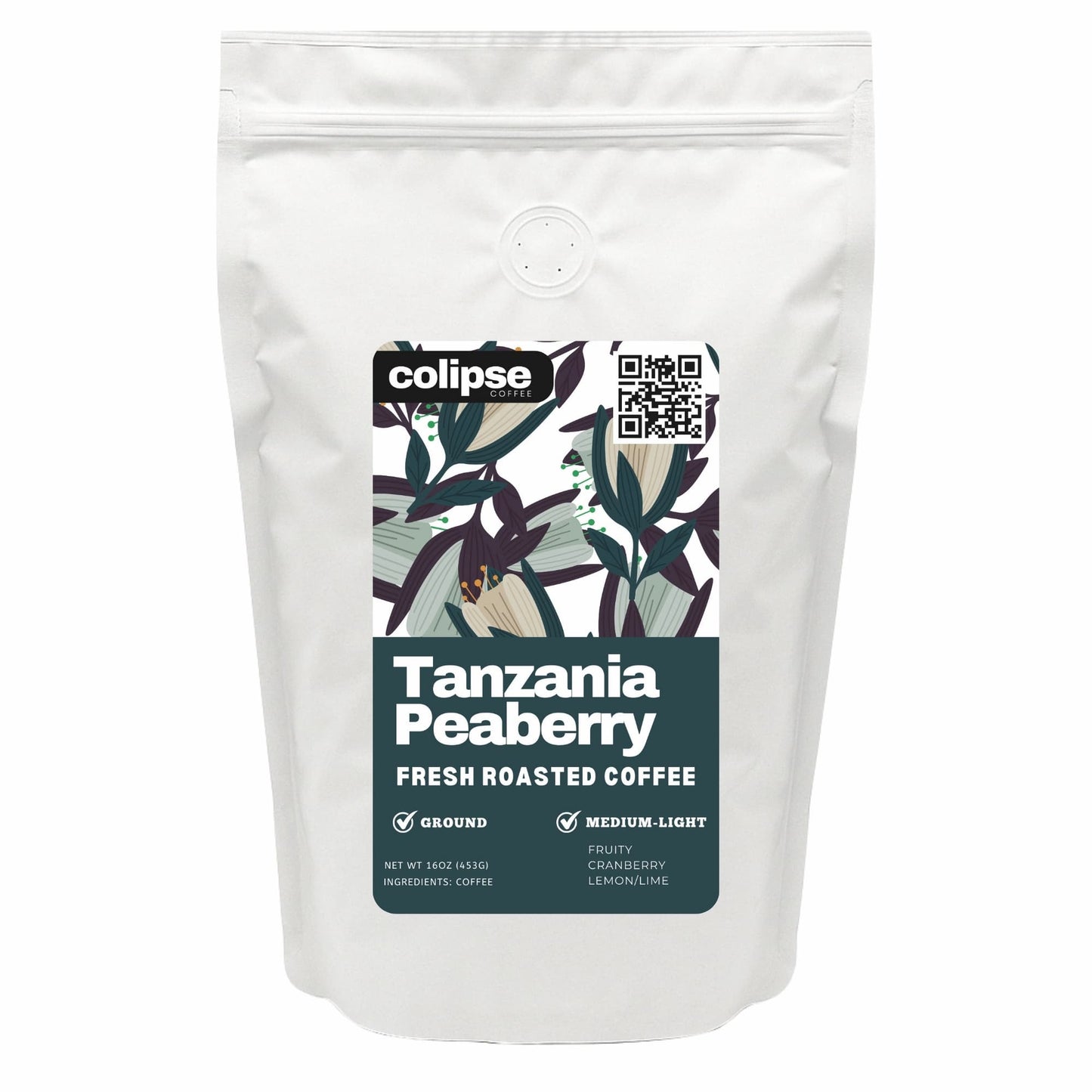
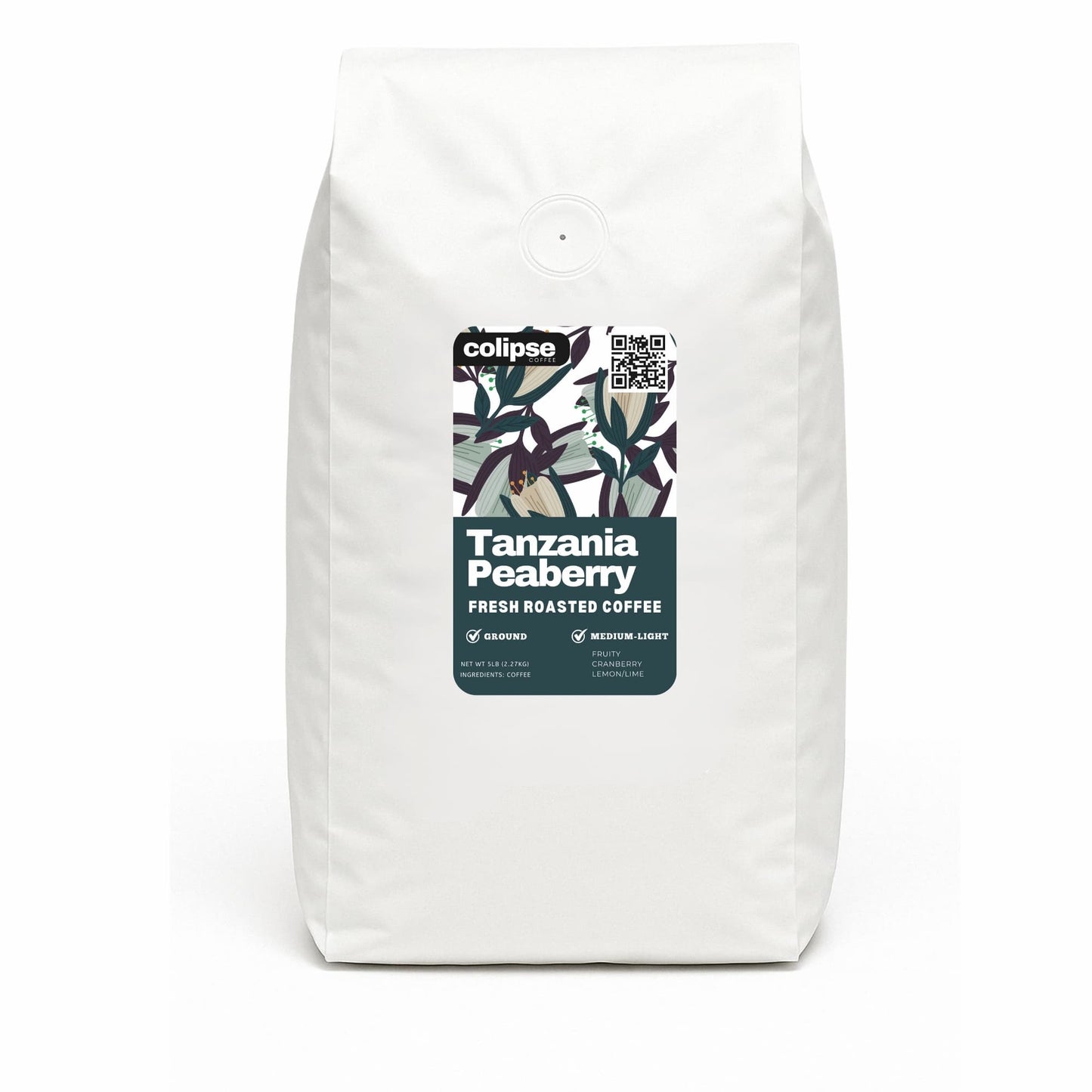
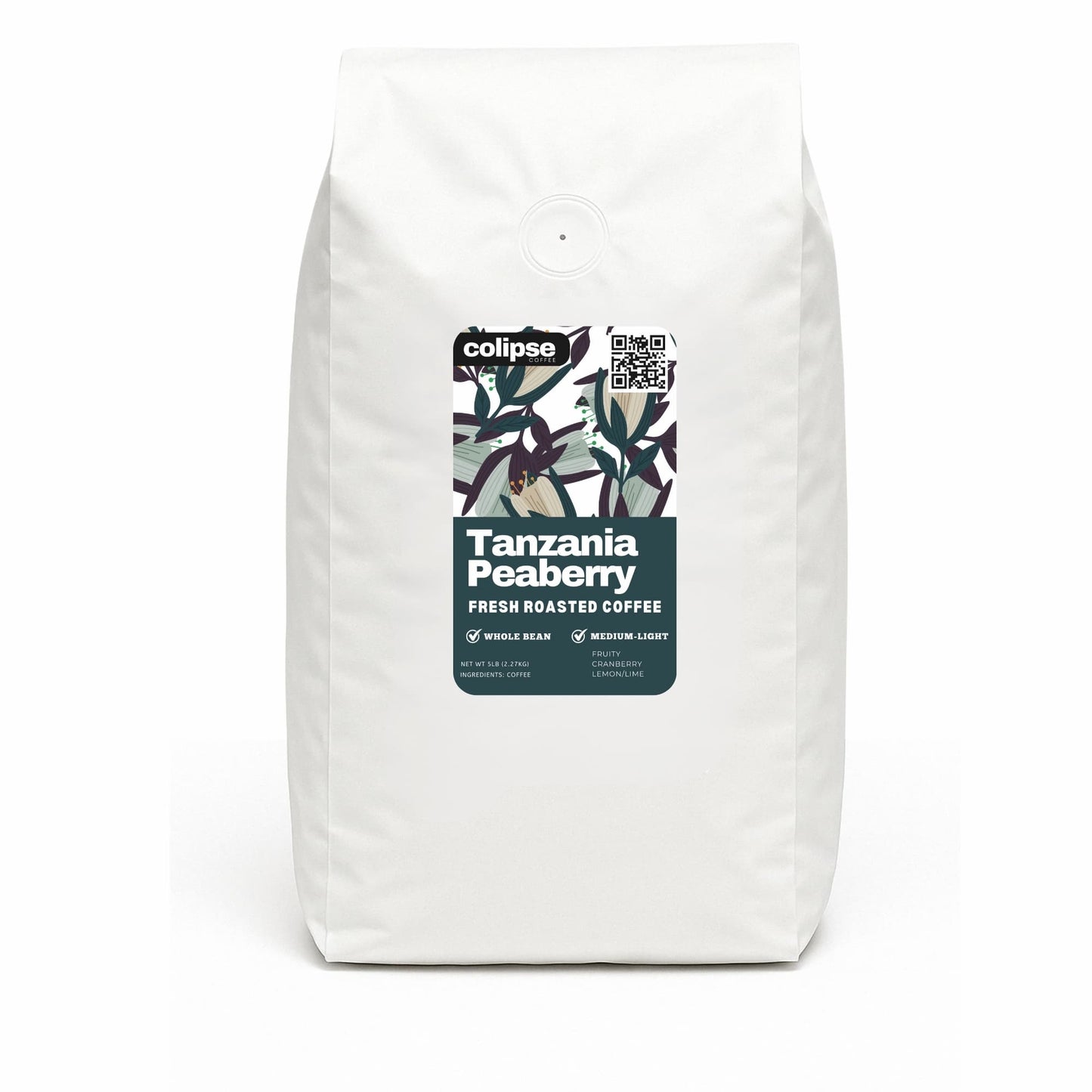
Frequently Asked Questions
Where to buy Tanzania Peaberry coffee?
You can buy Tanzania Peaberry coffee at Colipse to receive discounts, bulk offers, subscription deals, and sale access—priced competitively with Illy, Gevalia, and Peet's Coffee.
How to Store Tanzania Peaberry Coffee
Store Tanzania Peaberry coffee in an airtight container away from light, heat, and moisture. Keep it in a cool, dark place at room temperature. For long-term storage, freeze whole beans in sealed bags and grind only before brewing to preserve flavor and aroma.





